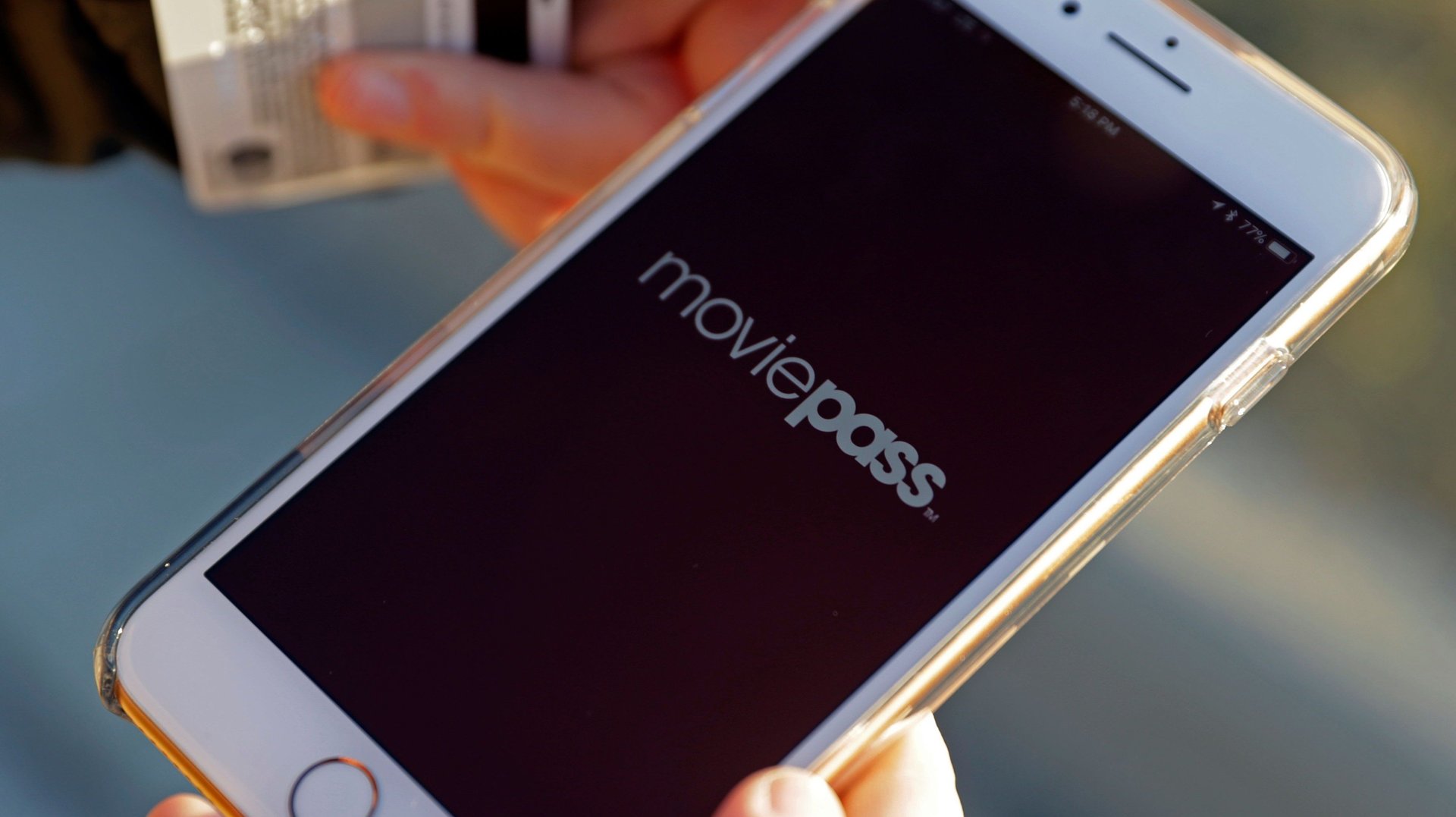MoviePass’s parent company is casting off the beleaguered subscription service
MoviePass’s parent company thinks the floundering movie-ticket subscription service is ready to sink or swim on its own.


MoviePass’s parent company thinks the floundering movie-ticket subscription service is ready to sink or swim on its own.
Helios and Matheson Analytics, which owns 92% of MoviePass, is planning to spin the business off into a standalone entity, it announced Oct. 23. The new publicly traded company, to be called MoviePass Entertainment Holdings, would include Helios’s majority stake in the movie-ticket subscription service, as well as its 51% stake in production arm MoviePass Films, its film investment business, MoviePass Ventures, and Moviefone, the phone service relic it bought from Oath this year to bolster MoviePass’s reach and ad business.
Helios would create a subsidiary for the assets before spinning them off, as a part of the plan, which has been preliminarily approved by the company’s board of directors, according to the announcement. Helios is planning to hold on to control of the new company, and distribute a minority stake to shareholders in the form of dividends.
Shares of Helios were trading up 15% at $0.02, during the time of publication. The stock nosedived this year as MoviePass’s business model unraveled. The company’s stock price is down 100% so far this year, including a reverse-stock split in July to keep the company from being delisted from the NASDAQ.
“HMNY largely has become synonymous with MoviePass in the public’s eye, leading us to believe that our shareholders and the market perception of HMNY might benefit from separating our movie-related assets from the rest of our company,” Ted Farnsworth, CEO of Helios, said in the statement, using the acronym for his company’s name. The announcement did not say who would lead the proposed new MoviePass Entertainment. Mitch Lowe, a former Netflix executive, is the current CEO of MoviePass.
Helios, a New York-based consulting firm known for backing and then spinning off tech startups, initially planned to spin off MoviePass as its own company by March 31, it said when it first took a majority stake in the company in August 2017. But financial troubles got in the way.
MoviePass, founded in 2011, set out last August to offer a movie per day in the US for roughly the price of Netflix, at $10 per month. By the following summer, after Helios resolved to sell more shares and take on debt to support MoviePass, it became clear the model wasn’t working: People were going to the movies too much. MoviePass suffered outages when it couldn’t pay processors for the tickets its members used, and service issues became rampant on the platform. It started restricting the movies members could see, and charging more to watch movies during busy times. In August 2018, it abandoned the unlimited movie model for one that offered three movie tickets per month—to a limited selection of films per day—for the same price of around $10. The limitations have significantly reduced the number of movies that MoviePass members watch, Farnsworth has said.
Recently, a group of students wanted to invest in MoviePass and take on an activist role. But MoviePass CEO Mitch Lowe told MarketWatch there were “other, larger media companies that have expressed interest in acquiring the company or partnering with us.” We will see what interest there actually is, when the company is a standalone business.
Helios, which garnered just 1% of its revenue from consulting in the first half of 2018, would forgo plans to spin off subsidiary Zone Technologies if it spins off MoviePass. Zone was run by Farnsworth before it was acquired by Helios in 2016, and created a digital crime-mapping app called RedZone.